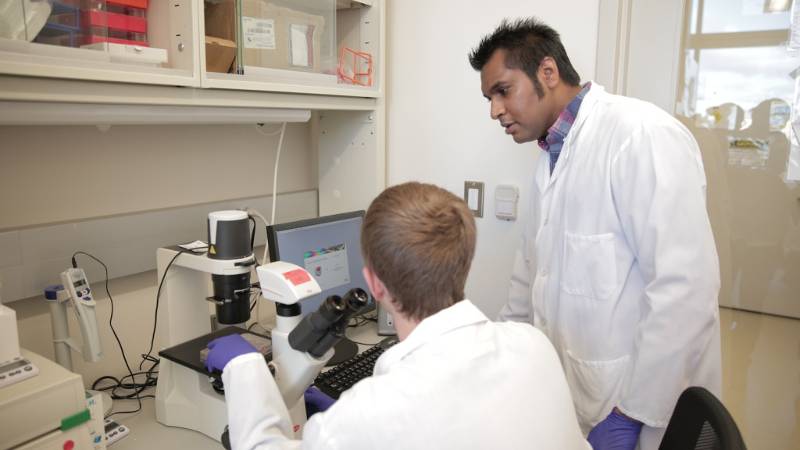A chance discovery has led to a major improvement in cancer treatment using the body’s own immune system. Researchers at the Wisconsin Institute for Discovery have found a way to make Chimeric Antigen Receptor (CAR) T-cell therapy more effective against solid tumors. The key? Putting the cells on a brief ‘keto diet’.
Accidental Discovery Leads to Breakthrough
Dan Cappabianca and Krishanu Saha’s team were comparing different growth conditions for T cells when a mix-up led to an unexpected result. Cappabianca explains: “We were comparing two distinct T-cell media formulations with varying nutrient levels. Interestingly, our breakthrough came entirely by chance. I inadvertently placed the cells in the wrong medium, which unexpectedly became the focal point of my entire thesis!”
This mishap led to a new two-step process for growing CAR T cells. First, the cells are placed in a nutrient-poor medium with low levels of glucose and glutamine. This stresses the cells and triggers processes that enhance their tumor-fighting abilities. Then, they’re moved to a high-nutrient medium to support rapid growth.
Three-Day ‘Keto Diet’ Boosts T Cell Performance
The result of this “metabolic priming” was impressive. Treated cells kept their stem cell-like qualities, improving their ability to kill cancer cells, form durable memory cells, and survive longer in the body.
Cappabianca describes the process: “We discovered that by briefly restricting sugar exposure, akin to a three-day ‘keto diet,’ our T cells showed reduced maturity at the end of the manufacturing process. The less mature they are when reinfused into a patient, the longer they live fighting cancer.”
This new approach also seemed to enhance the cells’ memory properties, helping them recognize and combat cancer more effectively over time.
The results speak for themselves. In recent studies using T cells grown with this new method, 63% of patients saw a partial or complete reduction in tumors for a time. That’s a significant improvement over previous clinical trials using standard CAR T cells, where only 15% of patients experienced similar results.
While more research is needed to fully understand why these CAR T cells are so effective, the team is optimistic about the future. They hope to adapt this “metabolic priming” process for large-scale manufacturing, with the goal of treating patients within the next few years.
Saha reflects on the serendipitous nature of their discovery: “A famous aphorism by French chemist Louis Pasteur is that ‘chance favors only the prepared mind’. Our unplanned media switch — really by chance — led us on a new path of discovery.”
This accidental breakthrough could lead to more effective treatments for solid tumors, offering new hope to cancer patients worldwide. As researchers continue to refine and expand this technique, we may be on the cusp of a new era in cancer immunotherapy.


